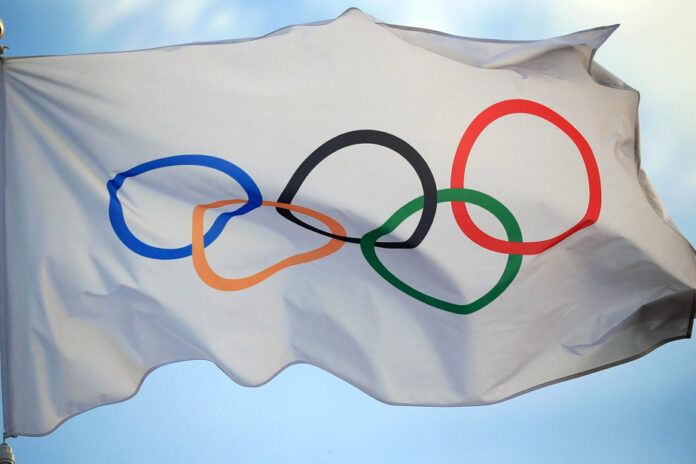(Bombay) A year and a half after the start of the war in Ukraine, the IOC on Thursday suspended the Russian national Olympic committee for having placed under its authority several sports organizations in occupied Ukrainian regions.
This new sanction, taken “with immediate effect” by the executive commission of the body, is in addition to the ban on any international competition on Russian soil as well as in allied Belarus, and on all official symbols of the two countries on the world’s fields and podiums since the invasion of Ukraine in February 2022.
However, it has no consequences on the possible presence of Russian and Belarusian athletes under a neutral banner at the 2024 Paris Olympics or the 2026 Milan-Cortina Olympics, which will be decided by the IOC “at the appropriate time” and “closer to the Games,” Mark Adams, spokesperson for the Olympic organization, told the press.
The IOC postponed the announcement of the sports program for the 2028 Olympic Games in Los Angeles until Friday, “to react to the unilateral decision” taken on October 5 by the Russian NOC to include among its members the sports organizations of the Donetsk regions, Kherson, Luhansk and Zaporizhzhia, located in eastern Ukraine occupied by the Russian army.
For the organization based in Lausanne, meeting until next Tuesday in Bombay for its 141st session, this is a “violation” by the Russian sports authorities of the “territorial integrity” of the Ukrainian Olympic committee, therefore of the Olympic Charter.
Furious, the Russian NOC immediately denounced on Telegram a “new counterproductive and clearly politically motivated decision” by the Olympic body, which it has accused since the start of the conflict of breaking free from its principled neutrality.
For its part, the Ukrainian presidency welcomed an “important decision”.
“Everyone in the world should respect the territorial integrity of nations and the Charter of the United Nations,” responded President Volodymyr Zelensky.
“If anyone in Russia thinks they can use sport and the Olympic movement as a weapon, it won’t work at all,” he added, thanking “all those who defend the principles of Olympicism “.
The IOC, which has not commented further on its decision, has been trying since the invasion of Ukraine to find a balance between sanctions against the Russian authorities directly responsible for the conflict, financial support for the Ukrainian sports community, and “protective measures » towards Russian athletes.
At the end of February 2022, describing the offensive as a violation of the Olympic truce linked to the Beijing Games, he recommended that the Olympic federations ban competitions in Russia and Belarus, as well as the anthem, flag and official equipment. of the two countries.
But its position has varied regarding the participation of Russian and Belarusian athletes in the same international competitions, a delicate issue as it opposes the principle of “non-discrimination” of athletes and the fear of cascading boycotts from adversaries angered by their presence.
For more than a year, the IOC therefore advocated the banning of athletes from both countries, to protect their own integrity as well as that of competitions, before making an about-face at the end of last March by recommending their reintegration under a neutral banner, individually, and as long as they have not “actively supported the war in Ukraine”.
Most international federations have gradually followed suit, each according to their own timetable, with the notable exception of the International Athletics Federation, one of the main Olympic sports.
Since March, the Olympic organization has, however, dissociated the reintegration into world sport from the Russian and Belarusian presence at the Paris and Milan Games, as the Olympic scene arouses global attention which makes it more politically exposed.
And on this point, the exclusion of the Russian national committee on Thursday leaves the suspense complete: the IOC will decide “later” and on a date that suits it, Mark Adams repeated on Thursday.















